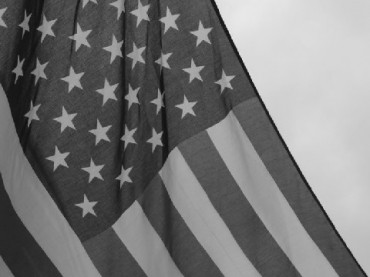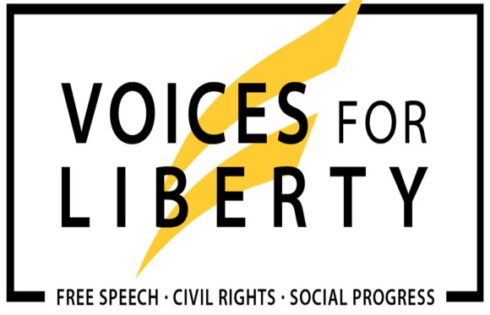
OPINION
One year ago today, our country changed forever.
It’s the day we began to learn just how incredibly intrusive government spying on average Americans had become in this technological age. June 5, 2013 – the day we began to understand what was at stake – our freedom, our privacy, our personal lives. The day the first of many news stories – courtesy of Edward Snowden – began to paint a picture of a shocking new world.
The steady trickle of revelations built into a crescendo that showed how the U.S. government is grabbing up massive amounts of data on Americans. Emails. Cell phones. Texts. Social media conversations. Instant messaging. It is staggering in scope. And all without a warrant. All in violation of our Fourth Amendment rights.
“The right of the people to be secure in their persons, houses, papers, and effects, against unreasonable searches and seizures, shall not be violated, and no warrants shall issue, but upon probable cause, supported by oath or affirmation, and particularly describing the place to be searched, and the persons or things to be seized.” That is the Fourth Amendment. It is very clear.
The government does not have a right to this data pointblank. And yet, some Americans suggest it’s the price of security. Indeed, President George W. Bush, a man I greatly respect, thinks this data collection is just fine. Ten days after the Snowden stories broke, The College Fix exclusively reported on a private speech the former president gave in which he defended the spying, saying:
“There’s kind of a view that maybe they’ve gone away – they haven’t,” Bush said, referring to terrorists. “And now, techniques used to prevent attacks have been disclosed. I don’t know if you remember after 9/11, Congress had hearings, right? And you know what the hearings were about? We didn’t connect the dots. Well, we didn’t have the tools there to connect the dots.”
“One of the killers makes a phone call from San Diego to somewhere, how come you didn’t know? We didn’t have the tools. We’ve got the tools. Now the people in Congress are saying, ‘Why are you connecting the dots?’ It’s a tough assignment for the president. It is.”
Yes, we want our government to connect the dots to fight terror, but not at the cost of our freedom, liberty and privacy. This isn’t East Germany with its Stasi secret police-this is America! A country founded on freedom and personal liberty. A country rooted in opposition to government tyranny. Think of the soldiers, sailors, Marines and airmen who have given their lives on the battlefield defending America, for which it stands. Are we to throw all that away for the vague promise of security?
A few months after the Snowden stories broke, I watched Les Miserables for the very first time. I was incredibly touched by this timeless musical, including the storyline of the brave young men who stood at the barricade and paid the ultimate sacrifice against their government for a just cause. The lyrics are as compelling as the melody behind them:
It is time for us all
To decide who we are
Do we fight for the right
To a night at the opera now?
Have you asked of yourselves
What’s the price you might pay?
Is it simply a game
For rich young boys to play?
The color of the world
Is changing day by dayRed: the blood of angry men!
Black: the dark of ages past!
Red: a world about to dawn!
Black: the night that ends at last!
It was after this moving experience that I asked myself where I stood – at the barricade? Or would I close my shutters, and pretend there’s nothing amiss?
It was then that I determined that if the U.S. government were to end its unconstitutional surveillance state and warrantless spy programs tomorrow – and I were to die a month later in some sort of terrorist bombing – I would count my death as the justifiable price for freedom and liberty in America.
It’s not an easy thing to admit to oneself. Yet, I could die crossing the street tomorrow as well. The point is, I don’t live this life to cower in fear. Nor do I live as an American who does not cherish all the sacrifices that have gone into making this country great.
Working with college students prompted me to determine if students would also make such a sacrifice. I am pleased to report many would. In an article written by College Fix editorial assistant Christopher White and published last August by The College Fix headlined “Students to NSA: We’d Rather Die Than Lose Our Liberty,” we told their stories. I proudly republish the article below, and call on our lawmakers to do the right thing.
We are Americans. We deserve to live free.
“Students to NSA: We’d Rather Die Than Lose Our Liberty”
The College Fix has identified college students from across the nation who agreed that if the U.S. government were to end its unconstitutional surveillance state and warrantless spy programs tomorrow – and the students were to die a month later in some sort of terrorist bombing – they would count their death as the justifiable price for freedom and liberty in America.
Take Hassan Sheikh, a 26-year-old libertarian working on his law degree at Creighton University in Omaha, Neb., who told The Fix he would definitely be willing to sacrifice the government’s assurances of security for the reinstitution of constitutional rights, even if that results in his death.
“All across the world … our armed forces put their lives in harm’s way to protect our way of life,” Sheikh says. “Why is it so ludicrous that ordinary citizens might give up the protections of domestic surveillance so that when our veterans return, they come back to the same America?”
Most of the students who agreed to the hypothetical scenario presented to them by The Fix are budding leaders in various liberty movements and groups on college campuses.
Among those students is Adam Wolter, 19, a self-described libertarian Republican studying software engineering at Iowa State University, who said he would “certainly consider my death in a terrorist attack justifiable for the preservation of freedom.”
Wolter went on to say that, as a software programmer, he sees “big data” as far more dangerous to “our safety and freedom” than terrorist attacks. As soon as data collection snowballs into larger and more comprehensive pieces, the constitutional freedoms that Americans enjoy will discontinue, Wolter said.
Bennett Morris, a 23-year-old liberty-leaning Republican and Illinois State University grad, also told The Fix that “I would much rather die having been free than die a slave to the police state.”
Morris said NSA’s security apparatus sacrifices freedom and privacy for the canard of security, adding Americans are probably more likely to be killed by a police officer than by a terrorist. Morris argued terrorism is too rare an action to warrant the abrogating or curbing of constitutional freedoms.
Kristie Constabileo, a 23 year-old libertarian attending William Rainey Harper College, echoed her peers’ sentiments.
Constabileo says she considers American liberty and freedom—as laid out by America’s Founding Fathers—to be sacrosanct and non-negotiable. With that in mind, she urges people not to take constitutional rights for granted when balancing security and freedom, saying “I hope that everyone would agree that our personal freedoms should not be so easily taken away.”
Elliot Young, a 20-year-old libertarian working toward an economics degree at Rhodes College in Memphis, Tenn., said that “with all liberty there is a price.”
“There is a semblance of danger in liberty and freedom,” he said. “It is something that is unavoidable.”
In total, The College Fix interviewed 13 students via email and telephone for the survey, most of whom agreed to the hypothetical scenario that in the event that the U.S. surveillance state ended its unconstitutional activities the students would count their death in a subsequent terrorist attack as a justifiable price for freedom and liberty.
However a few students said that while they were inclined to agree with the notion that liberty is more important than a security state, they found it difficult to wholly commit to the idea of a hypothetical death. Other students agreed, but declined to have their names published.
The students were posed the question in the wake of ongoing revelations that began in June with whistleblower Edward Snowden’s disclosures about various National Security Agency programs that track and analyze Americans’ cell phone calls and personal Internet activity.
In defense of its programs, the NSA—as well as President Obama—has explained there are filters in place to prevent the abuse of gathered data, which, the NSA says, helps strike an appropriate balance between security and constitutional freedoms.
Many top Republicans, including former President Bush – who led the charge for the approval of the Patriot Act in 2001 in the immediate aftermath of the Sept. 11 terrorist attacks – have also defended the surveillance tactics as a necessary part of keeping Americans safe.
The Patriot Act is what is cited by the feds today to justify their surveillance programs, however many scholars disagree with the constitutionality of their arguments, calling the spy programs a violation of Americans’ First and Fourth amendment rights.
As the tumult around the National Security Agency swirls, more and more young Americans have voiced frustration with increasingly troublesome news of how the NSA programs operate and what data is collected and analyzed.
Various news reports in just the last week have disclosed that the NSA has dramatically increased its communications gathering techniques, and is capable of sifting, mining and recording 75 percent of all Internet traffic in the name of targeting foreign terrorism cells; that the agency has repeatedly misled the court that oversees its American surveillance operations; and that it agents have collected tens of thousands of emails with no connection whatsoever to terrorism.
In fact NSA officers, according to Wall Street Journal reports, have, over the course of a decade, used their vast surveillance capabilities to spy on lovers and love interests. The occurrences of NSA officers spying on loved ones is frequent enough to warrant the NSA giving said occurrences the label of “LOVEINT.”
College students and Millennials have become some of the most prominent groups of citizens voicing their concerns over the situation, deeming it an encroachment on personal privacy and constitutional liberties.
The students cited in this article, in emails with The College Fix, say they understand they are echoing the ideals of those such as Benjamin Franklin’s “He who sacrifices freedom for security deserves neither” and Patrick Henry’s “Give me liberty, or give me death!”
Jennifer Kabbany is associate editor of The College Fix ( @JenniferKabbany )
Like The College Fix on Facebook / Follow us on Twitter





Please join the conversation about our stories on Facebook, Twitter, Instagram, Reddit, MeWe, Rumble, Gab, Minds and Gettr.